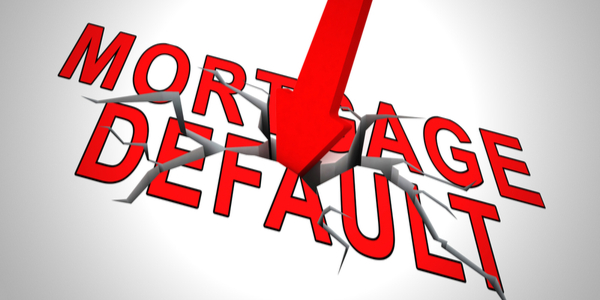While both Short Sale and Foreclosure are regarded as default management in mortgage and are both fundamentally similar, short sale and foreclosure have their own vices and virtues. Lenders must take prudent decisions and factor in their fiscal benefits while opting among these default management services.
Short sale as a mortgage default process is a win-win strategy for both a lender and the homeowner where the former gets to recover a part of their investments into a property and the latter get relief from a mortgage burden. We will discuss both the notions in detail in this article. This mortgage default servicing process gained more relevance during the period between 2008-2012, when the US market reeled under the housing crisis. During this period, homeowners posted a collective delinquency rate of about 18%. A short sale is explored as an option when the mortgage balance of a homeowner is more than the market or sales value of the property held by the owner.

For a short sale, a homeowner approaches a mortgage lender to agree to a lesser amount to buy the property than the total mortgage owed. For instance, if the mortgage balance of a homeowner amounts to USD 500,000 and he/she manages to sell the property at USD 300,000, the seller is short of USD 200,000 on paying the lender back. This sums up the idea behind a short sale. If the lender agrees to accept the terms of the proposed short sale, the loan debt will reach a settlement and the homeowner will be unburdened from any additional liability post the closure of the short sale. For a lender, even though they have to let go a certain portion of the loan but agreeing to a short sale facilitates lesser loss than a foreclosure generally entails.
Short Sale or Foreclosure- What’s the best Option for a lender?
On the outset, a foreclosure and a short sale can appear to be comparable. All things considered, both happen when a buyer is on the verge of a mortgage default. If in case a lender is approached by a homeowner facing mortgage default management to consider a short sale or a foreclosure, it is crucial that the former be aware of the some significant contrasts that exist between them and adjudge which option should they agree to. Generally, a short sale works similar to a conventional house deal. A homeowner files a letter stating about his/her current financial hardship which is inhibiting the full repayment of the mortgage. The lender must conduct a careful scrutiny of the authenticity of the conditions cited in the letter.
Generally, a sudden financial downturn than an undisclosed longstanding issue should be a convincing factor for a lender. It is prudent to opt for a foreclosure as a mortgage default servicing process if it is revealed that a homeowner has a persistent financial issue. Post this scrutiny, the property will be featured in the sales list and the offers made by prospective buyers will be sent to the lender for approval. Here’s another crucial juncture that most of the lenders tend to overlook is the financial information map of the homeowner revealed in the offers sent to lenders for approval. The financial asset information on the offers can further highlight the ability or the inability of a homeowner to pay off their mortgage loan.
This works in favor of lenders who can do a better judgement as to whether they should still allow a short sale or oblige the homeowner to pay the mortgage loan.
Let’s find out more about the differences between a short sale and foreclosure:
- The Timing
Usually, Short sales take longer to finish as compared to foreclosures. During a foreclosure, the lender is firm on figuring out how to recover whatever is possible, so proceedings tend to move rapidly. With a short sale, banks need several approvals before they can push ahead with the sale. That is the reason short sales can frequently take longer to close.
- The Financial Impact
As one of the mortgage default management services, a foreclosure entails recurring expenses and time for lenders. They are responsible for dispatching warnings and notices to homeowners which is a time-consuming task. If a foreclosure case moves into the court, it heralds additional legal expenses for lenders in the form of legal filings and all the pertinent documentation. Post a foreclosure, the burden of selling the house and getting a good deal for the same further befalls on the lender. Whereas, in a short sale, the lender has the option of recovering some portion of the money that they had invested into the property and bypass all the legal tensions and expenses involved in a foreclosure.
- The Sellers Involvement
The seller is deeply involved in the short sale process. However, other than taking the final call on who purchases the home, the process is traditional. In a foreclosure, the lender drives most of the mortgage default process cycle. Apart from having the option to negotiate with the lender during the pre-foreclosure time frame, the seller doesn’t have much say in what happens.
Why Lenders Should Choose Short Sale over a Foreclosure?

Foreclosure is a very tedious and stressful mortgage default servicing process for a lender to undertake and execute while hitting a homeowner’s assets. A short sale on the other hand can be a better option.
- It is less stressful– Lenders have the responsibility to execute the arduous and stressful process of a foreclosure. They have to be in a constant touch with a homeowner with demand letters and other necessary documents, and constant exchanges with the legal team is another added burden. This entails additional cost, time, and headache for lenders in the due process. While there is no denying the fact that in a short sale, there are still negotiations, meetings and paperwork, the process plays out more like a traditional sale, as opposed to a litigious and pressure-packed foreclosure proceeding.
- Untampered property value– A property auctioned off after a foreclosure tends to undergo a severely depreciated value. A neighborhood populated by foreclosed properties is not a lucrative prospect for the lender who is seeking to sell the property at a decent value. On the other hand, a property recovered by a lender through a short sale procedure tends to retain most of its original value that makes it easier for the lender to sell the property at good rates.
- Save money– Post the sale of a property through a foreclosure, a lender has the option of suing the homeowner to retrieve money that’s owed beyond the sum for which a property in a foreclosure. But this entails additional cost burden for lenders. Even though lenders assume ownership of a property, the responsibility of selling the same t decent rates befall on them which entails sufficient expenses in the form of real estate brokerage charges for property sale. While avoiding the tedious procedure of a foreclosure, mortgage lenders have the chance to retrieve the lion’s share of the principal amount of loan sooner. Choosing short sale over a foreclosure caters to a lender’s typical primary goal of getting the money back and avert the responsibility of property sale.
Why Outsource Short Sale Services?

There is no doubting the fact choosing short sale over a foreclosure will have positive financial implications for lenders as well as will unburden them from the tasks that a foreclosure usually entails. But outsourcing short sale services can further benefit lenders in terms of shortening the time of closing the mortgage default process and ensure an optimal evaluation of the property. There are always the nitty gritty of a process which can make a huge difference in the process and is best handled by experts. Here’s a look at the benefits a lender can gain by outsourcing short sale services:
Dexterous inspection of borrower’s financial status – On behalf of the lender, the outsourcing vendor starts the process by collecting the short sale request letter from the borrower examine the reasons cited for the borrower’s financial hardship. The outsourcing vendor assumes the responsibility of collating and examining the borrower’s bills, property taxes status, and other loan payments. Analyzing these documents puts the vendor in a better position to advise a lender as whether or not the borrower in question qualifies for a short sale. Vendors factor in other supporting documents such as divorce files, medical bills, employment documents to get a fairer picture of the borrower’s financial status.
Title issues support– As short sale service being one of the core functions of an outsourcing vendor, they have the requisite expertise to offer resolution to any emerging title issues during a short sale negotiation. They aid lenders to determine if there are any other persons who have a claim on the property and check for single and multiple liens post a short sale approval. They are expected to offer a gamut of services such as title ordering, search, commitment preparation during title clearance for short sale process.
Short sale appraisal support– Outsourcing vendors have domain experts at their disposal that enable them to offer efficient support services to cater to short sale appraisal needs. They aid with broker price opinion that is essential in determining the true value of the property in question. Their back-office support services aid lenders to determine property market value in a faster and efficient way. They provide support in lenders order and review appraisals. Scopes of an outsourcing vendor’s back-office services cover for an effective execution of property conditions, prepare cost estimates for repair and maintenance, gain an accurate understanding of neighborhood listings, among others.
Conclusion
The overall advice is that while exploring default management services, short sales should be preferred over foreclosures. This is because a short sale leaves some control to the property holder. The possibility of a short sale depends on the situation. The lender should get the best offer value before a deal can be endorsed, and there are different assessment suggestions for both the dealer and the purchaser.
Who we are and why we are an Industry Authority?
With our proficient and on-time back-office assistance in short sale documentation services and pre-foreclosure short sale services too, we guarantee cost-adequacy, precision, information quality, and high information security no matter what. Expert Mortgage Assistance, has over a decade long experience as a short sales service provider. Our mortgage short sale services are thorough which can likewise be custom fitted to suit your careful necessities. Our 24×7 support for lenders aids a robust execution of a short sale procedure. We have the flexibility to work with lenders affiliated to Home Affordable Foreclosure Alternatives Program (HAFA) as well as those who are not affiliated to HAFA. We work in close quarters with lenders for the collection, review of hardship letter, disclosure of financial statements, HUD-1 Settlement Statement, and purchase agreement to execute a seamless closure of the short sale procedure. Our ability to bring an effective and smooth closure has brought us the recognition of one of the most sought after third party support for short sales services.





